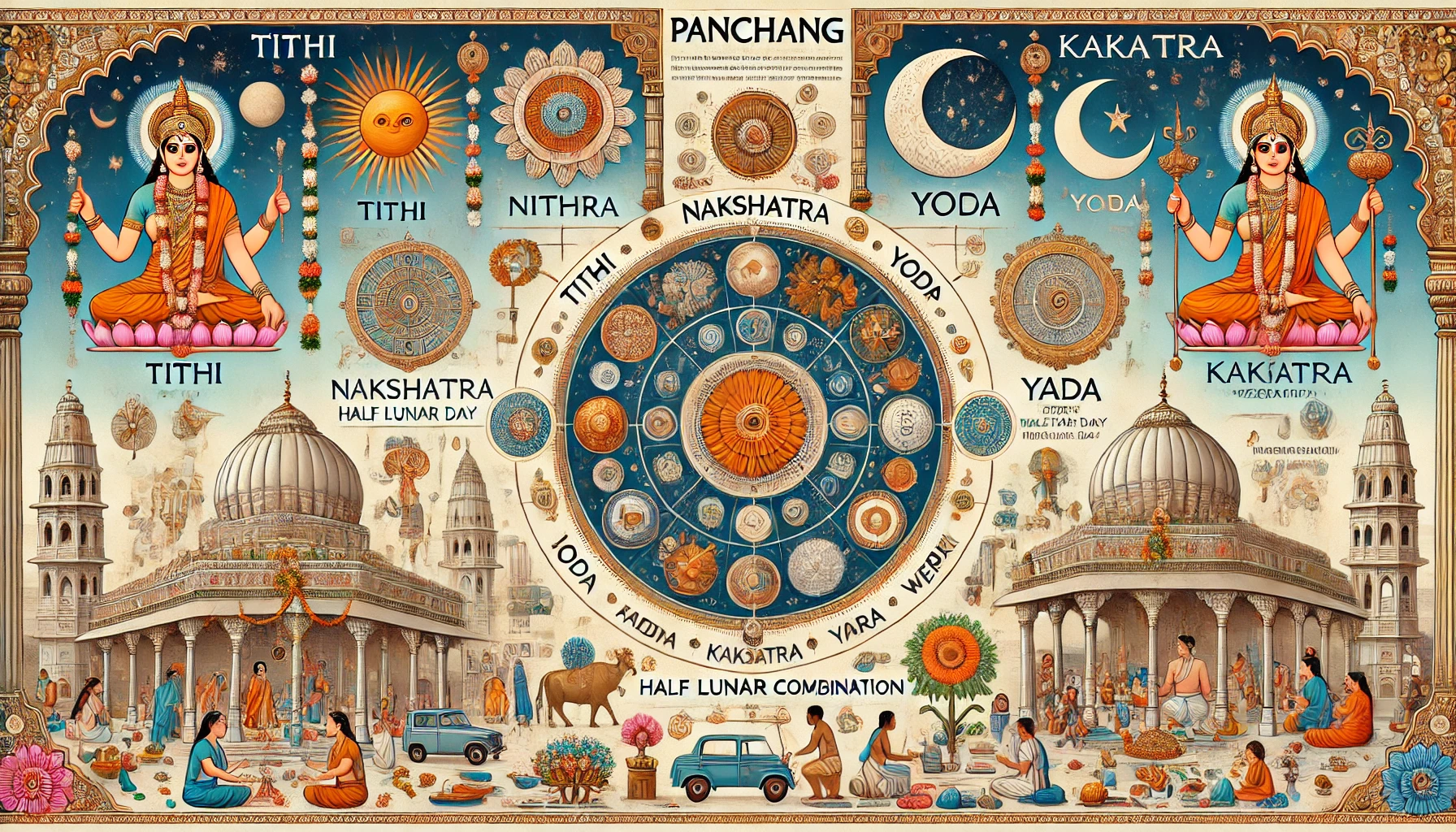Understanding Panchang in Hindu Religion

Need Guidance On Your Problems?
Consult With The Best Online Astrologers
The rich tapestry of Hindu culture and tradition is woven with numerous rituals, festivals, and ceremonies, each deeply rooted in ancient wisdom and practices. One such indispensable element in Hindu life is the "Panchang." For those unfamiliar with Hindu customs, the Panchang is more than just a calendar; it is a comprehensive almanac that guides the daily lives of millions of Hindus around the world. In this blog, we will explore what Panchang is, its components, and its significance in Hindu religion.
What is Panchang?
The term "Panchang" is derived from the Sanskrit words "Pancha" meaning five, and "Anga" meaning limbs or parts. Thus, Panchang refers to the five essential components that make up this traditional Hindu calendar. It is used to determine auspicious timings (muhurtas) for various religious and social activities such as marriages, ceremonies, travels, and important business ventures.
Components of Panchang
The Panchang is a meticulous compilation that includes the following five elements:
1. Tithi (Lunar Day)
Tithi refers to the lunar day or the time it takes for the longitudinal angle between the moon and the sun to increase by 12 degrees. There are 30 Tithis in a lunar month, each having its own significance and influence on various activities.
2. Vara (Day of the Week)
Vara denotes the days of the week. Each day is ruled by a specific planet and carries its own unique characteristics. For instance, Sunday (Ravivara) is ruled by the Sun, Monday (Somavara) by the Moon, and so forth.
3. Nakshatra (Lunar Mansion)
Nakshatra refers to the 27 lunar mansions or constellations that the moon travels through during its monthly cycle. Each Nakshatra has its own attributes and is used in various astrological calculations to determine auspicious times for different activities.
4. Yoga (Luni-Solar Day)
Yoga is a specific combination of the positions of the sun and the moon. There are 27 Yogas, and each one is believed to have particular effects on an individual's life and activities.
5. Karana (Half of a Tithi)
Karana is half of a Tithi, and there are 11 Karanas in total. Each Tithi is divided into two Karanas. These are used to calculate the auspicious timings for starting new ventures and ceremonies.
Significance of Panchang
The Panchang plays a crucial role in the daily lives of Hindus. Its significance is multifaceted, encompassing religious, astrological, and cultural aspects.
Religious Significance
In Hinduism, timing is of paramount importance. Whether it is performing a Puja (prayer), undertaking a pilgrimage, or celebrating a festival, the Panchang provides guidance on the most auspicious times to perform these activities. It ensures that rituals are conducted at the most spiritually beneficial times.
Astrological Importance
Astrology, or Jyotish Shastra, is deeply integrated into Hindu culture. The Panchang is an essential tool for astrologers who use it to make horoscopes, predict future events, and advise on important life decisions. The alignment of planets and stars at the time of an individual's birth is recorded in their Janam Kundli (birth chart), which is also based on Panchang calculations.
Cultural Relevance
The Panchang is also a cultural guide, marking important festivals, fasts, and observances. It helps people align their personal and social activities with traditional practices, thereby preserving the cultural heritage and fostering community spirit.
How to Use Panchang
Using the Panchang involves understanding its various components and interpreting them correctly. While this may seem complex, there are numerous resources available today, including Panchang apps and online tools, that simplify this process. Many families consult their local priests or astrologers for detailed guidance on using the Panchang.
Conclusion
The Panchang is much more than a calendar; it is a spiritual guide, a cultural preserver, and an astrological tool. Its five components—Tithi, Vara, Nakshatra, Yoga, and Karana—offer a comprehensive framework for aligning one’s life with the cosmic rhythms. Whether you are planning a wedding, starting a new business, or celebrating a festival, consulting the Panchang can help ensure that your activities are in harmony with the universe, bringing prosperity, peace, and success.
Embracing the wisdom of the Panchang allows one to connect with the ancient traditions of Hinduism and live a life attuned to the natural and spiritual world.



